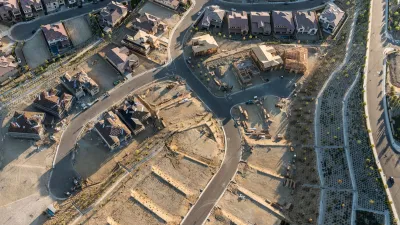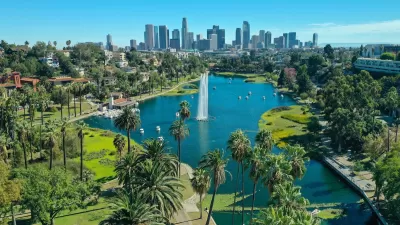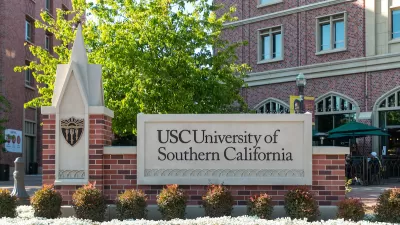A new study estimates that LA County must invest billions of dollars before 2040 to protect residents from extreme heat, increasing precipitation, worsening wildfires, rising sea levels, and climate-induced public health threats.

With climate-driven disasters in Southern California getting more intense each year, it is more important than ever for communities to invest in a wide range of climate adaptation and resilience projects and measures. As reported by Hayley Smith of the LA Times, a recently released new study offers estimated costs of preparing for and adapting to 14 different climate impacts on municipal, county, state, and federal governments in Los Angeles County.
According to the report by The Center for Climate Integrity, the most costly adaptation categories are related to precipitation and heat, including an estimated $4.3 billion for improved stormwater management, $2.5 billion for cool pavement investments, and $1.4 billion for tree canopies to combat urban heat islands. Other costs include wildfire mitigation, coastal defense and infrastructure protection, building upgrades for cooling and air conditioning, and responses to vector-borne diseases.
The study estimates that municipal, county, state, and federal governments will need to expend at least $12.5 billion through 2040, more than $9 billion of which will be incurred by municipal governments. The total cost equates to about $780 million annually to protect communities in L.A. County from extreme heat, changing precipitation, wildfires, rising sea levels, and climate-induced public health threats.
FULL STORY: L.A. County faces $12.5 billion in climate costs through 2040, study says

Planetizen Federal Action Tracker
A weekly monitor of how Trump’s orders and actions are impacting planners and planning in America.

Congressman Proposes Bill to Rename DC Metro “Trump Train”
The Make Autorail Great Again Act would withhold federal funding to the system until the Washington Metropolitan Area Transit Authority (WMATA), rebrands as the Washington Metropolitan Authority for Greater Access (WMAGA).

DARTSpace Platform Streamlines Dallas TOD Application Process
The Dallas transit agency hopes a shorter permitting timeline will boost transit-oriented development around rail stations.

Supreme Court Ruling in Pipeline Case Guts Federal Environmental Law
The decision limits the scope of a federal law that mandates extensive environmental impact reviews of energy, infrastructure, and transportation projects.

Texas State Bills to Defund Dallas Transit Die
DART would have seen a 30% service cut, $230M annual losses had the bills survived.

Bikeshare for the Win: Team Pedals to London Cricket Match, Beats Rivals Stuck in Traffic
While their opponents sat in gridlock, England's national cricket team hopped Lime bikes, riding to a 3-0 victory.
Urban Design for Planners 1: Software Tools
This six-course series explores essential urban design concepts using open source software and equips planners with the tools they need to participate fully in the urban design process.
Planning for Universal Design
Learn the tools for implementing Universal Design in planning regulations.
Roanoke Valley-Alleghany Regional Commission
City of Mt Shasta
City of Camden Redevelopment Agency
City of Astoria
Transportation Research & Education Center (TREC) at Portland State University
US High Speed Rail Association
City of Camden Redevelopment Agency
Municipality of Princeton (NJ)





























